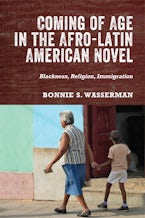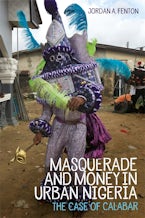
Title Details
222 Pages
22.8 x 15.2 cm
4 b/w, 2 line illus.
Series: Rochester Studies in African History and the Diaspora
Series Vol. Number:
90
Imprint: University of Rochester Press
Cultivating Their Own
Agriculture in Western Kenya during the "Development" Era
- Description
- Contents
- Author
- Reviews
Traces the consequences of agricultural development in western Kenya in the 1950s and 1960s
After more than fifty years of development, why have interventions and aid failed to yield greater poverty alleviation in Sub-Saharan Africa? Why did the agricultural development projects that were transpiring in places like Kenyaduring the "development era" of the 1950s and 1960s not take-off? Cultivating Their Own: Agriculture in Western Kenya during the "Development" Era explores these questions and others that continue to drive the research agendas of international aid agencies and development scholars in the twenty-first century. The book centers on four agricultural development projects unfolding in a densely populated rural area of western Kenya during the country'stransition to independence and its first few years under de facto one-party rule. Drawing on an array of primary sources and oral interviews, Saeteurn argues that the project of agrarianism failed to germinate in places like western Kenya because of competing interests, conflicting agendas, and structural problems inherent in the process of development at the international, national, and local level. Cultivating Their Own is a timely reminder of theimportance of paying attention not only to local people's aspirations but also to the realities of rural life when creating projects that mobilize agriculture for poverty reduction.
After more than fifty years of development, why have interventions and aid failed to yield greater poverty alleviation in Sub-Saharan Africa? Why did the agricultural development projects that were transpiring in places like Kenyaduring the "development era" of the 1950s and 1960s not take-off? Cultivating Their Own: Agriculture in Western Kenya during the "Development" Era explores these questions and others that continue to drive the research agendas of international aid agencies and development scholars in the twenty-first century. The book centers on four agricultural development projects unfolding in a densely populated rural area of western Kenya during the country'stransition to independence and its first few years under de facto one-party rule. Drawing on an array of primary sources and oral interviews, Saeteurn argues that the project of agrarianism failed to germinate in places like western Kenya because of competing interests, conflicting agendas, and structural problems inherent in the process of development at the international, national, and local level. Cultivating Their Own is a timely reminder of theimportance of paying attention not only to local people's aspirations but also to the realities of rural life when creating projects that mobilize agriculture for poverty reduction.
Introduction
The Role of Agriculture in Kenya's Political Economy in the Era of Transition and Independence
Western Kenya's Region, People, and the Origins of Population Density
Chavakali Secondary School: A place of learning and farming
Doing Their Part': 4-K Farmers Clubs
Friends and Acres: The Friends Africa Mission Stewardship Program
"Home is Home": The Lugari Settlement Scheme and Maragoliland
The Role of Agriculture in Kenya's Political Economy in the Era of Transition and Independence
Western Kenya's Region, People, and the Origins of Population Density
Chavakali Secondary School: A place of learning and farming
Doing Their Part': 4-K Farmers Clubs
Friends and Acres: The Friends Africa Mission Stewardship Program
"Home is Home": The Lugari Settlement Scheme and Maragoliland
"Cultivating Their Own explores the limitations of development plans designed and implemented from above without the input of those for whom the development is intended. The book is a significant contribution to the literature on development planning in agrarian societies." .
"Shadrack Nasong'o, Professor of International Studies, Rhodes College." .
"This is a carefully researched and clearly written local history, which provides a timely reminder of the importance of grounding policy interventions in local realities." .
"Sara Berry, Academy Professor and Professor Emeritus of History, Johns Hopkins University" .
Hardcover
9781580469791
June 2020
$99.00 / £85.00
Ebook (EPDF)
9781787448650
June 2020
£24.99 / $29.95
Title Details
222 Pages
2.28 x 1.52 cm
4 b/w, 2 line illus.
Series: Rochester Studies in African History and the Diaspora
Series Vol. Number:
90
Imprint: University of Rochester Press














